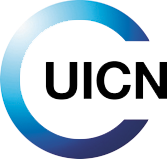030 - Coopération internationale sur la pollution marine issue des navires échoués
030 - Coopération internationale sur la pollution marine issue des navires échoués
RECONNAISSANT que la pollution de nos océans est un problème mondial, qui menace les espèces marines et leurs écosystèmes ;
NOTANT qu’il existe plus de 8500 navires échoués potentiellement polluants dans le monde, contenant plus de 22 milliards de gallons de combustible, dont la plupart datent de la Deuxième Guerre mondiale, et qu’à cause d’années d'érosion, la question des fuites de carburant n’est plus « si » mais « quand » cela aura lieu ;
RECONNAISSANT PAR AILLEURS que la pollution issue des épaves est un problème moins connu, mais tout aussi important, qui menace la stabilité et les moyens d'existence de nos océans et des écosystèmes marins ;
TROUBLÉ par la menace environnementale immédiate que le carburant et autres produits chimiques dangereux commenceront et continueront à déverser dans nos océans, alors que l’état des navires échoués continue à se détériorer ;
INQUIET que la majorité des efforts pour éliminer le carburant ont lieu lorsqu’une fuite est rapportée, alors que les océans et l’environnement méritent et exigent une approche proactive face à cette menace ; et
RECONNAISSANT les efforts de plusieurs pays pour documenter et maintenir des bases de données afin de surveiller ces épaves, notamment l'Estonie, la Finlande et la Suisse, avec leurs registres d’épaves et le travail d'évaluation des risques réalisé par le biais du projet Évaluation des risques environnementaux des épaves échouées (SWERA) ;
1. ENCOURAGE le Directeur général à envisager une collaboration avec les Membres, dans l’optique de produire une boîte à outils afin d’évaluer la menace que constitue la pollution aux hydrocarbures issue des épaves et d’identifier les solutions possibles.
2. APPELLE les États et organismes gouvernementaux Membres à continuer à développer et à partager des outils et bonnes pratiques innovantes pour l’élimination des polluants issus des navires échoués ayant des hydrocarbures ou des biens emballés dangereux à bord.


